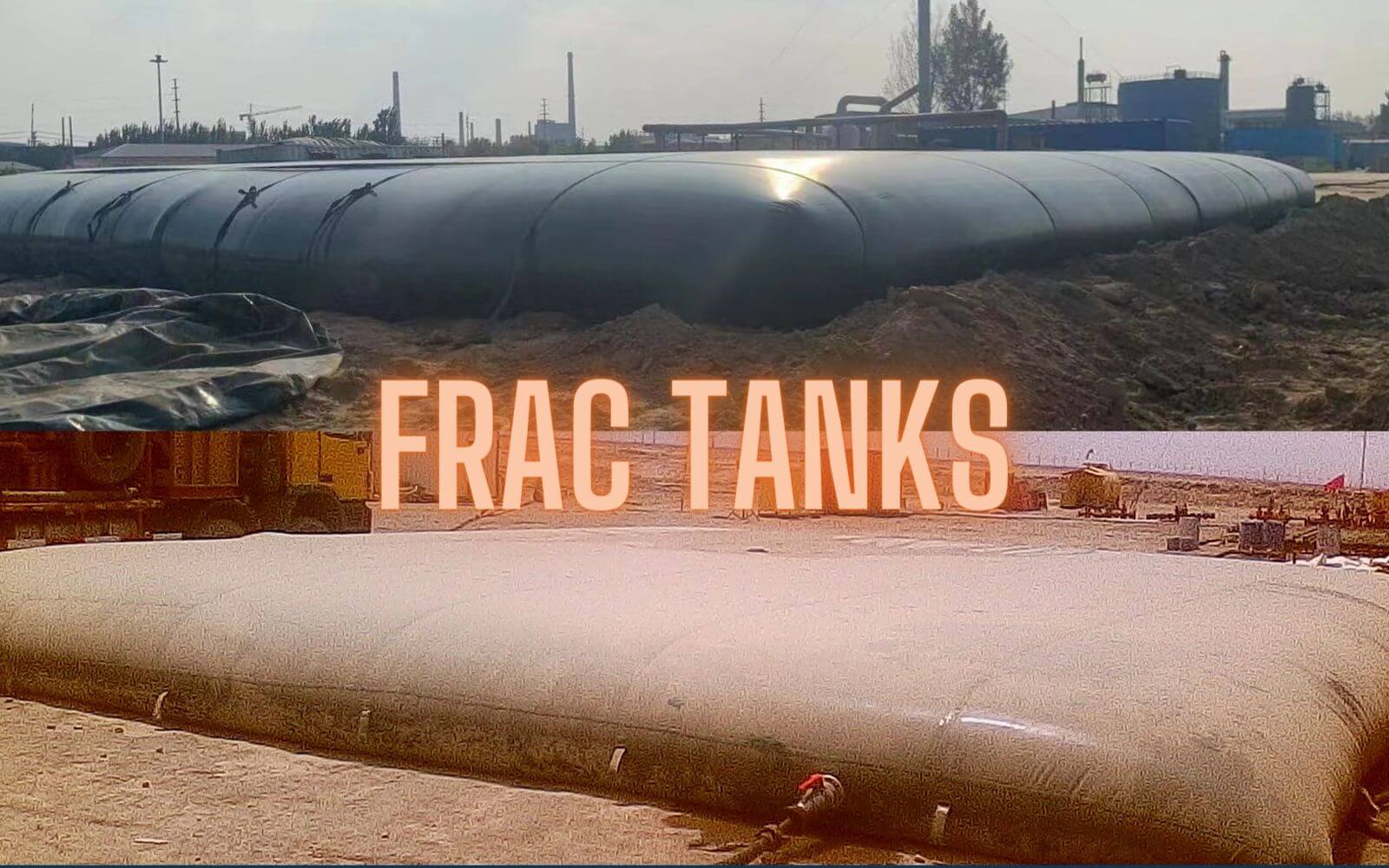FRAC TANKS
Liquid storage is an important item in various industries, from oil, gas, fuel to water in industrial sites, agriculture and emergency response. Traditional storage solutions sometimes lack the flexibility needed to adapt to specific requirements. Now, we explore the innovative liquid solution by flexible large tanks, commonly known as “frac tanks.” These tanks redefine efficiency, adaptability, and safety in liquid storage. We delve into their flexible designs, material choices, and actual applications.
A frac tank (short for “fracturing tank”) is a large, mobile container designed for temporary storage of liquids, including water, fuel. These tanks serve various industries and play an important role in liquid management.
Purpose and Functionality
- Temporary Storage: Frac tanks widely use to store liquids until proper disposal Most of the applications on the fracturing tanks are in the outdoor industrial sites, like mining fluid project, hydraulic fracturing, wastewater management, emergency response, etc.
- Versatility: They can hold a wide range of materials: water, fuel, oil, from petroleum products to agricultural fertilizer liquid.
Main Usages:
Mining Fracture:
Process overview:
- Drilling a Borehole: First, a borehole drills into the targeted rock formation.
- Fluid Injection: A high-pressure fluid (usually water mixed with additives) injects into the borehole.
- Fracture Initiation: The fluid pressure creates tensile stress in the rock at the borehole wall, causing a fracture to start.
- Fracture Propagation: The fluid enters the fracture and extends it deep into the rock, creating a network of fractures.
- Cave Inducement: In mining, hydraulic fracturing weakens the rock, making it more prone to fragmentation and caving.
Oil and Gas Industry:
- Fracking fluid storage during drilling operations.
- Temporary storage for oil spills or emergencies.
- Frac tank use for storage and transportation fuel, as it can be deployed easily and fast in safety.
Agriculture and Irrigation:
- Water storage for irrigation systems.
- Seasonal water management.
- Frac tankswork as a containment, prevent liquids from seeping into the ground.
- Commonly used in agriculture to store water for livestock, irrigation water storage, and fertilizer liquid storage.
Emergency Response and Disaster Relief:
- Rapid deployment during natural disasters.
- Temporary water supply for affected areas.
Open Top Tanks:
The top opened flexible tanks, as usual, there have 2 types: self-supporting tanks(onion tanks) and frame support tanks. Here we will explore the advantages and considerations:
Advantages:
- Easy to deploy, like the onion tank, there is almost no need to install.
- Movable, can pack into small carton/pallet for transportation when empty.
- Wide choice on size, onion tank(100L-40,000L), frame supporting tank(5000L-1,000,000L).
- Easy to use, top free means the liquid stored can be utilized direct.
Consideration:
- Can’t use to store volatile liquid and harmful liquid.
Closed Top Tanks:
Similar functionality to open top tanks.
Used for hazardous materials or common liquids, almost no limited on type of liquids. (commonly in the fracking industry).
- Frac tank sizes vary, capacity ranges from 100Lto as large as 1,000,000L.
- Using flexible and durable material, thisconfiguration makes them convenient for transportation, can save time and cost on the shipment. The 1m3 tank, the packing size is only 0.3m3.
- Easy installation, 3 steps: unfold, filled, done. That’s why we call the flexible large tanks can quick deploy.
- Long serve life, using in right way, the tank can use over 10 years, durable materials used and reinforced process guarantee the flexible tanks’
- UV-resistant, anti-corrosion, anti-bacterial, working temperature: -40~90 degree, those configurations make the bladder tanks can work in extreme environment.
Materials and Construction:
Considering about the materials according to the different applications:
For fuel storage, including the diesel, gasoline, lube oil, JP-8, etc. Material should be polyester TPU which is compatible to fuel storage.
For drinking water storage, the materials must be food-grade, then the polyether TPU needed which meets the FDA standards.
Wastewater management, chemical liquid storage, the PVC is good choice with cheap cost and stable chemical configurations.
Shape and Customization
The most popular shape of the flexible frac tanks is pillow shape and rectangular shape, but the shape can be customized according to the working condition. Besides the shape and form, the capacity and the fittings are customized also.
Transport and Storage:
Collapsible and configuration makes the bladder tanks can fold and pack in carton for easily transportation.
When at site, the unpacking is easy to handle, clean the ground and placing the frac tank on the ground, connecting the inlet & outlet, filling liquid into, finished.
Liquid Compatibility:
Multi-liquid storage available, from water(including drinking and non-drinking), fuel, chemical storage and transportation.
Flexible large tanks offer a paradigm shift in liquid storage. Their adaptability, efficiency, and versatility make them indispensable across industries. As technology evolves, these tanks will continue to redefine how we store and manage liquids.








